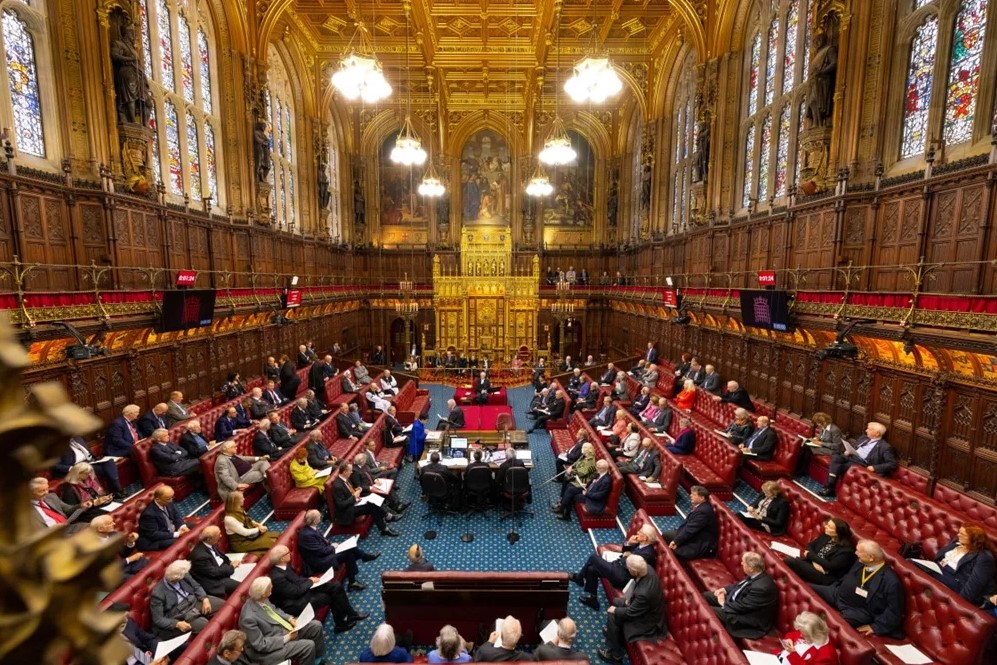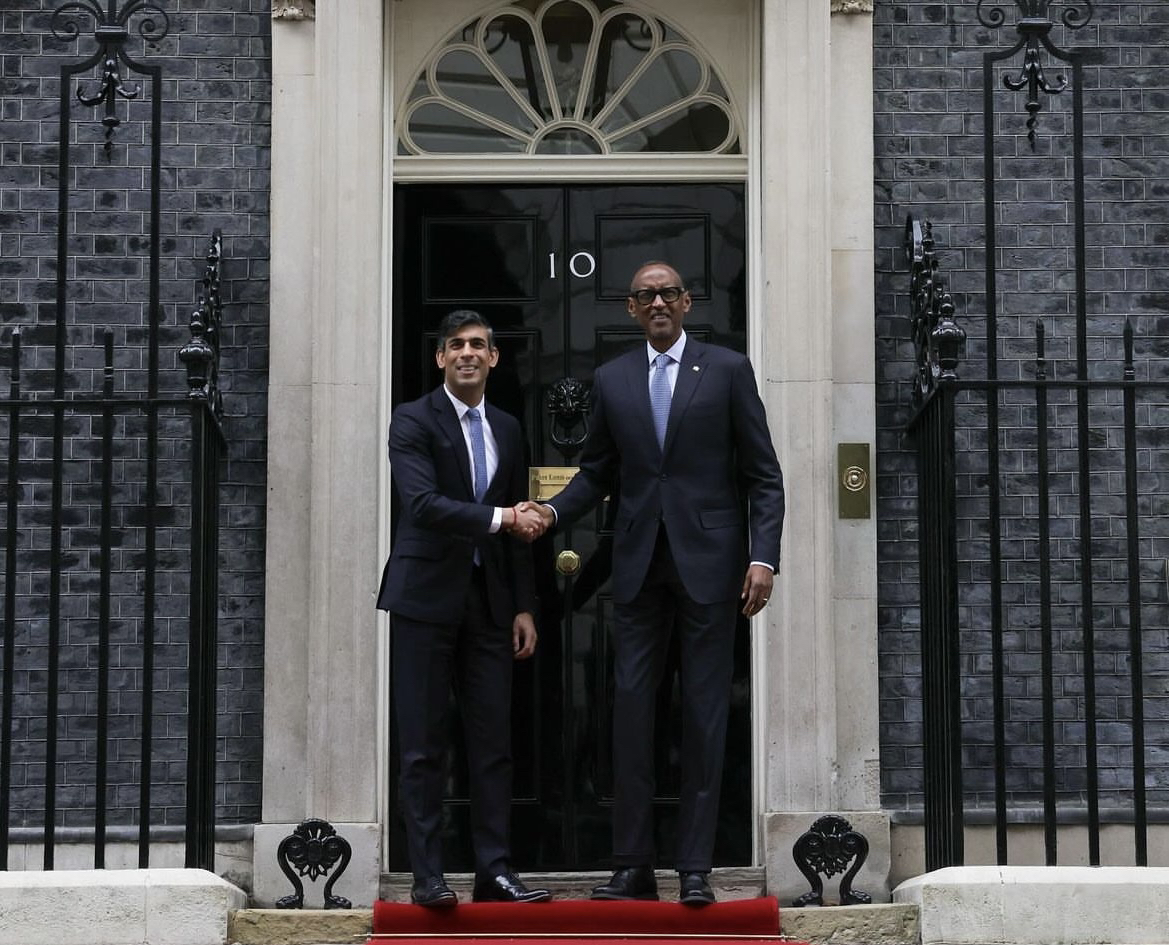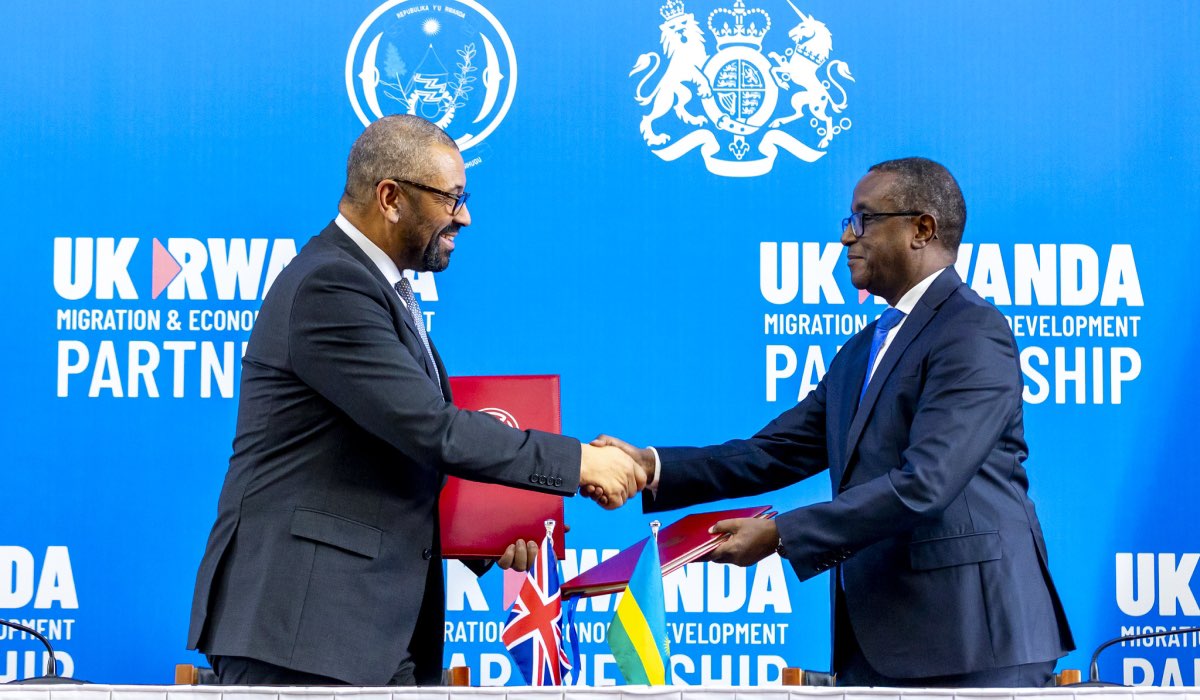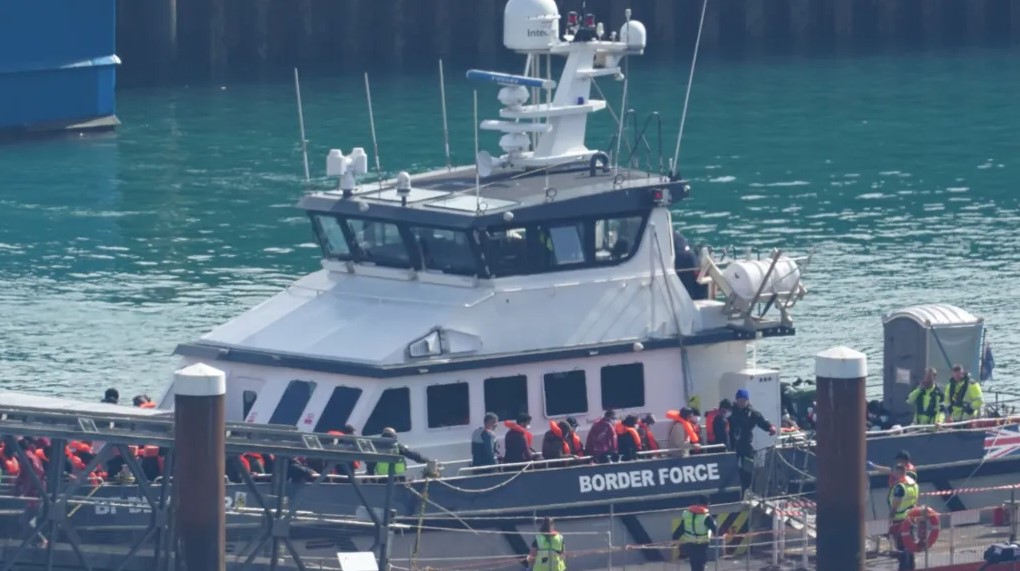The UK’s ‘Safety of Rwanda’ bill has finally passed through the House of Lords after a prolonged session between them and the House of Commons. The bill now needs to gain royal assent, before becoming law.
“No ifs, No Buts”
In the very early hours of the morning of April 23rd, the UK’s ‘Safety of Rwanda’ bill has officially passed through parliament. The bill is the theoretical last step before the government can fulfill their plan in order to deport illegal migrants and illegal asylum seekers from the UK to Rwanda.
The bills passage came after a several hour long session between the House of Commons and the House of Lords in order to debate the bill, and repeated amendments that the House of Lords had attempted to instate upon the bill.
On the morning of the 22nd, UK Prime Minister held a press conference concerning the matter. He stated that the two houses would convene to discuss the bill, and that it would pass the same day “no matter how late it goes.”
“No ifs no buts, these flights are going to Rwanda” -UK Prime Minister Rishi Sunak
The bill had initially passed the House of Commons in mid-January, however had repeatedly been sent back by the House of Lords, who voted to instate an array of different amendments. During todays session, the bill was sent back for the fifth time, before the Lords amendments were promptly rejected by the MP’s once again.

Following this rejection, and the insistence of the MP’s of the bill without amendments, the House of Lords relented and stated they would “accept the will of the elected house.”
PM Sunak blamed the opposition Labour Party for the delays, which for this particular bill have been going on for several months.
“For almost two years, our opponents have used every trick in the book to block fights and keep the votes coming” -UK Prime Minister Rishi Sunak
The Labour Party has been staunchly opposed to the bill, and the plan itself. They, among other critics, claim that the plan is overly expensive, voids the UK’s legal responsibilities and humanitarian obligations, and fails to act as a legitimate deterrent for migrants coming to the UK. The Labour Party has stated their intention to repeal the bill if elected, which looks to be very likely as they hold a more than 20 point lead in electoral polls for the upcoming federal election.
Other opponents of the bill have criticized Rwanda’s human rights record, claiming the nation to be unsafe and that migrants will potentially face mistreatment if deported there. Although Rwanda experiences a moderate level of progress, political opponents oftentimes face repression from a government that some claim is authoritarian.
Additionally, Rwanda is also host to a large amount of refugees from neighbouring Burundi and the Democratic Republic of the Congo, refugees that opponents claim the government is not properly caring for.
Also in PM Sunak’s press conference, was a flight timeline.
PM Sunak claimed that flights will take off to Rwanda in 10-12 weeks, so either late June or early July. Notably, this is outside of PM Sunak’s initial promise that flights would take off within Spring, a promise that he and other prominent Conservative politicians involved in the plan had reiterated on several occasions.
PM Sunak acknowledged that flights would not be taking off within Spring, but defended the new timeline by saying his government was trying to “do this properly.”
“This isn’t just about one flight. Could you rush and get one flight off? Maybe you could. But that’s not the priority. The priority is being able to deliver a regular rhythm – a drumbeat – of multiple flights a month over the summer and beyond because that’s how you build a systematic deterrent” -UK Prime Minister Rishi Sunak

There are still a number of unknowns about how the plan will go forward. Namely, it is not definite which airline will be carrying out the deportations, and how many people will be deported. PM Sunak providing a timeline insinuates that the government has selected a partner, however has yet to announce it. Previously, when different airliners had stated they were in talks with the government on the matter, they were pressured into dropping any talks by activists. As such, it is likely that the government is not announcing their airline partner in order to avoid a repeat of this situation.
Furthermore, PM Sunak stated that he would not release all of the relevant information on the plan in order to not give opponents to the bill, in particular the Labour Party, the ability to file any more challenges and continue to “hinder” the efforts made by the government.
Although he did not say the amount of deportees, PM Sunak did say that the first list of deportees has been identified, and that they will be detained during the 10-12 weeks before flights take off. In order to accommodate these detentions, the UK has increased its detention centre capacity to 2,200 people.
With the passage of the bill, Rwanda has resumed preparations to begin accepting migrants. While obviously invested in the plan, Rwanda had largely sat back and watched the procession of the bill in the UK. When questioned about the legal troubles the bill while attending the Davos 2024 forum in Switzerland in January, Rwandan President Paul Kagame told interviewers to “ask the UK,” and that it was “the UK’s problem.”

The Bill
The Safety of Rwanda bill seeks to establish Rwanda as a ‘safe’ country according to UK law. The reasoning for this is a deal the UK has signed with Rwanda in order to deport illegal immigrants and illegal asylum seekers to Rwanda, meant to be a deterrent for small boat crossings into the UK from the English Channel.
The deal and relevant legislation, however, were struck down by the UK’s Supreme Court in November on the grounds that Rwanda was not a ‘safe’ country for those being deported. The court claimed that deportees could face mistreatment in Rwanda, deportation from Rwanda to their nation of origin or a third country, and that Rwanda’s capabilities to receive an influx of deportees from the UK were not good enough.
British Prime Minister Rishi Sunak and Conservative MP James Cleverly tabled the Safety of Rwanda bill in response, after signing a new agreement with Rwanda. The new agreement, signed on December 5th, 2023, carries with it provisions to ensure that people sent to Rwanda cannot be deported from Rwanda to another country.

Additionally, the bill seeks to halt legal challenges from entities outside the UK, such as the European Court of Human Rights, which has prevented deportations to Rwanda in the past. PM Sunak had previously said the “decision will lie entirely with ministers.” However, the amendments tabled by the Lords seek to restore the jurisdiction of domestic courts and allow their intervention.
Thus far, the UK has already spent 240 million pounds (304 million USD) on the plan in payments to Rwanda, largely in order to facilitate the upgrade of Rwandan institutions and increase their ability to receive a large flow of migrants from the UK. Upon the plan’s completion, it is set to cost the UK a total of at least 370 million pounds (470 million USD).
The plan to deport illegal migrants and illegal asylum seekers from the UK to Rwanda was first mentioned two years ago by at the time Prime Minister Boris Johnson.
Stop the Boats: An Increasing Trend
The Rwanda deportation plan is the flagship of PM Sunak’s ‘Stop the Boats’ initiative, which is meant to deter illegal immigrants from making the journey across the English Channel to the UK in small boats. The journey is very dangerous, and one oftentimes organized by human trafficking groups. Journeys made by migrants to various destinations in Europe regularly result in fatalities after the oftentimes poor quality and overcrowded boats capsize.
PM Sunak claimed in January that the plan was working, stating that small boat entries into the UK were down a third in 2023 from 2022. However, recent large crossings show a drastic increase in small boat crossings, not a decrease.
On Sunday, April 14th, 534 people arrived in the UK across 10 boats. This crossing marked the largest single day crossing so far in 2024, after the previous record had only been set just a few weeks prior on March 20th, which saw 514 migrants enter the UK through small boats.

The additional 534 people shot the number of crossings so far this year above 6,000, to 6,265. This is 28% higher than the same period in 2023, and is seven per cent higher than the same period in 2022, which was the year the UK experienced the highest amount of Channel crossings at 45,774 people, making 2024 projected to be the busiest year on record for Channel crossings if they continue at this rate. Data for crossings over the last several days has not been released.
While the government has acknowledged the increase in crossings, they have blamed it on favourable weather conditions, combined with an increase in violence perpetrated by human trafficking groups. Notably, this is after the government had claimed in December that the 2023 fall in crossings was not related to unfavourable weather conditions.
The UK has partnered with France to try and stop some of these small boat crossings, with PM Sunak agreeing to pay France several hundred million pounds over several years to assist with them halting migrants. This is in addition to the already more than 700 million pounds the UK has given France for this same purpose since 2014.
The UK’s partnership with France has recently fallen under scrutiny, as footage and claims surfaced of French police using overly aggressive tactics against migrant boats that some claim put their lives in danger.

